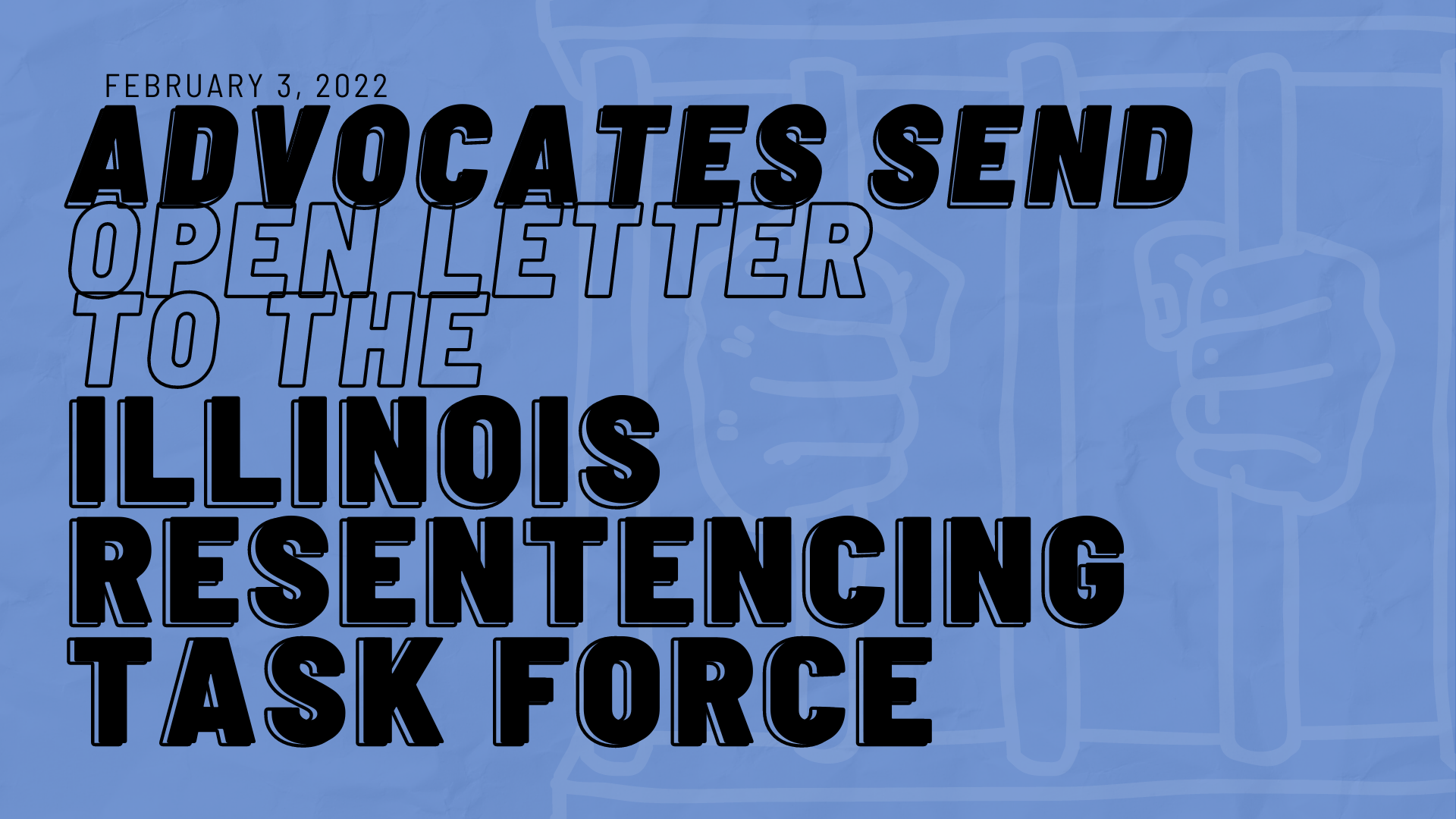Principles for Earned Release Sentencing Reform In Illinois
The Collaboration for Justice of Chicago Appleseed Center for Fair Courts and the Chicago Council of Lawyers, along with a coalition of supporting organizations, have released an open letter to the Illinois Resentencing Task Force urging them to be guided by a set of shared principles for earned release sentencing reform in Illinois. The Illinois Resentencing Task Force was established by P.L. 102-0099 to “study innovative ways to reduce the prison population in Illinois,” according to its statutory mandate. The Task Force will meet at least four times and release its recommendations by July 1, 2022.
According to the Illinois Sentencing Policy Advisory Council, nearly 12% of people incarcerated in the Illinois Department of Corrections (IDOC) – 3,235 individuals – have already served 20 years or more of their sentences; another 19% of IDOC’s population – 5,177 people – are projected to serve over 20 years but have not yet done so.
The number of people having served over 20 years doubled between 2010 and 2020, largely due to statutory mandatory minimum sentences and truth-in-sentencing laws that limit the ability of people convicted of many offenses to earn time off of their sentences. Illinois imprisons Black people at almost eight times the rate that it imprisons white people; of those who already have served 20 years or more, two-thirds are Black.
In 2019, the Collaboration for Justice convened a coalition to examine ways to reduce Illinois’ population of individuals serving 20+ year sentences in Illinois. The group of organizations, including incarcerated and formerly-incarcerated people, developed the Guiding Principles of Earned Release Sentencing Reform in Illinois. These principles include, among other things, that the factors in determining eligibility for release should focus on a person’s actions since sentencing, not the nature of their conviction, that multiple avenues for release should be available, and that these processes should be as simple and accessible as possible.
In the fall of 2021, the coalition turned its attention to the Illinois Resentencing Task Force. The animating belief behind the coalition’s work is that too many people are serving lengthy sentences in IDOC, even after they have been rehabilitated, aged out of likely rearrest, or have been diagnosed with terminal medical conditions. Many others are serving decades behind bars for crimes that would not be prosecuted today—or likely would not have been sentenced so harshly. The taxpayers of Illinois, and society at large, are not well-served by keeping such individuals behind bars. There must be mechanisms for people in these situations to earn their freedom.
We urge the Resentencing Task Force to recommend the establishment and broadening of multiple pathways for those serving long sentences in the Illinois Department of Corrections (IDOC) to earn release from prison. Those pathways may include:
- Review by the Prisoner Review Board;
- Clemency by the Governor;
- Resentencing by the original judge or a new judge on a motion by the defendant;
- Resentencing by the original judge or a new judge on a motion by the State’s Attorney;
- Resentencing by the original judge on the judge’s own motion;
- Creation of a new sentencing review court that automatically and regularly reviews the terms of individuals incarcerated over a certain length of time; and/or
- Medical and geriatric release based on health-related circumstances or age.
Some of these pathways, such as executive clemency and resentencing on the motion by a State’s Attorney, already exist but are difficult for many incarcerated individuals to access. For those, application of the Principles would result in broadening access by simplifying paperwork, streamlining the process, and providing a right to counsel. Some pathways would need to be created, such as automatic review after an individual has served a certain length of time and geriatric release based on age. For those, we urge the Resentencing Task Force to examine the best decision-maker for the review process, taking account principles of non-discrimination, adequate training, and evidence-based decision-making.
While the prison population has been falling steadily since 2012, 39,878 people were in the Illinois Department of Corrections (IDOC) in 2018 – a 158% increase since 1983 – and today, 27,245 people (as of November 30, 2021) are imprisoned by the state. We encourage the Resentencing Task Force to seriously consider these pathways to reducing Illinois’ prison population and reforming the state’s sentencing laws. Read our full letter here.
Written by Alexandra Block, Co-Chair of the Collaboration for Justice’s Criminal Justice Advisory Committee (CJAC).

